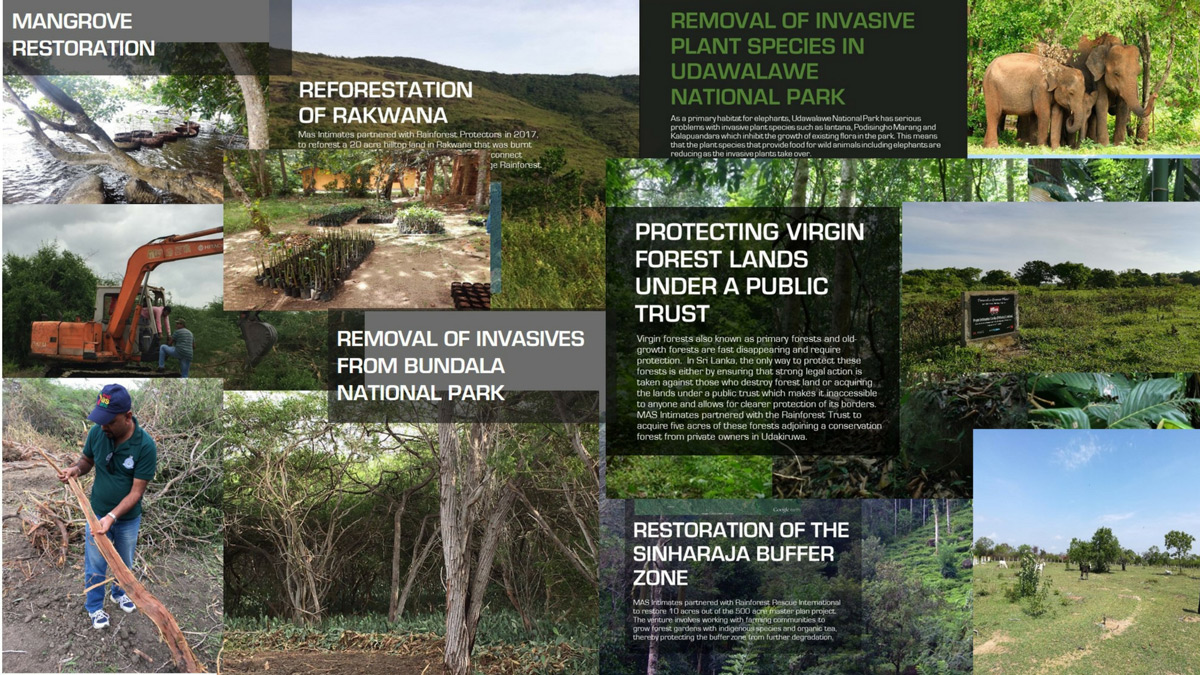Turning Invasive Plant waste to Biofuel

Ten years ago together with the Department of Wildlife Conservation (DWC) Linea Aqua began a multipronged war against the fast spreading Prosopis juliflora tree inside the Bundala National Park. Linea Aqua Ltd. is a leading Sri Lankan apparel manufacturing company, a joint venture between MAS Holdings Pvt Ltd, Speedo International Limited (UK) and Brandot International Ltd (USA), which was established in 2001.
Bundula National Park is Sri Lanka’s first Ramsar Wetland spanning over 3,400 hectares and is home to 197 species. The Park is under growing threat from both inside and out, externally from the growing human population in its vicinity, and internally from the proliferation of invasive species which has now taken over one third of the park. The biggest offenders are two species of plants, Proposis juliflora and Cactus which have essentially taken over large areas of the park in the last decade or so. In 2008 Linea Aqua decided to intervene due to the Park’s appeal as a biodiversity hotspot. Using mechanisms and best practices, members of local community organizations and employees of Linea Aqua spearheaded the clearing, using both manpower and machinery.
In 2017 MAS began exploring how to better use the tons of invasive biomass currently being thrown or sent for fuel wood to nearby communities. Research found that the invasive has high calorific value and is an excellent source of biofuel which could be easily replace traditional biomass being used in MAS boilers. A successful trial at MAS KREEDA Synergy has resulted in the group now seeking ways to switch to 100% sustainably sourced biomass for all viable locations.
Back Story:
MAS has started projects to remove few major invasive species types in Sri Lanka which threatens the existence of major ecosystems. Invasive, non-native plants are posing serious threats to native species, communities, and to the overall ecosystem balance of many key natural habitats in Sri Lanka such as Bundala, Udawalawe, Horton plains, and Sinharaja rainforest. These species compete with and displace native plants and animals and can alter ecosystems’ functions, structures, and cycles. In addition, they could promote other undesirable plant growth.
Where MAS has intervened.
- Bundala National Park – 700 acres Prosopis juliflora species
- Horton Plains National Park – 110 acres Ulex europaeus species
- Badagamuwa Forest Reserve – 29 acres Acacia cassia species
- Singharaja Rainforest Reserve – 21 acres Dicranopteris linearis species
- Udawalawe National Park – 15 acres Lantana camara species
